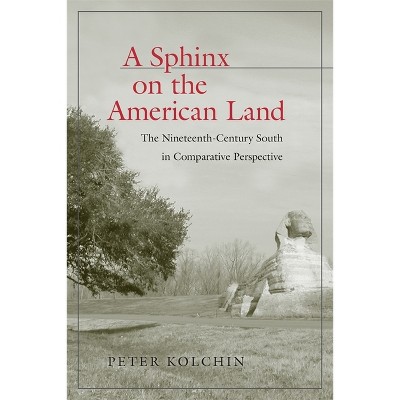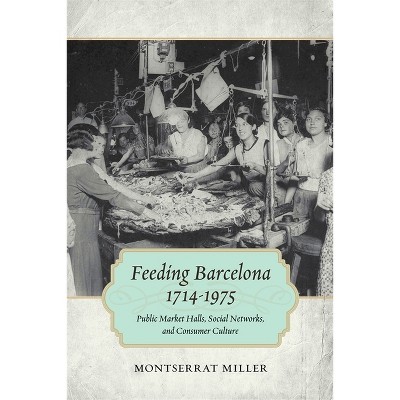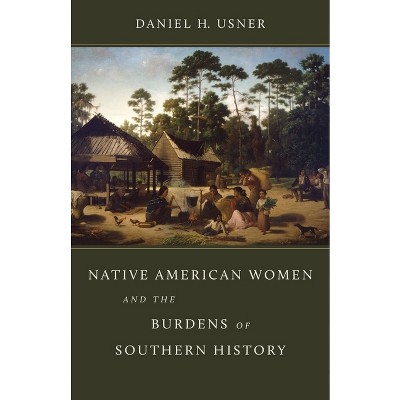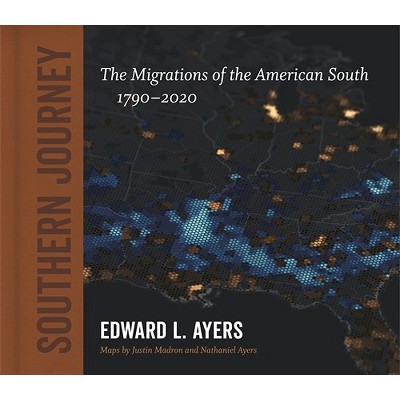Sponsored

The Last Fire-Eater - (Walter Lynwood Fleming Lectures in Southern History) by William Link (Hardcover)
$27.49Save $2.51 (8% off)
In Stock
Eligible for registries and wish lists
Sponsored
About this item
Highlights
- In The Last Fire-Eater, renowned historian of the American South William A. Link examines the life of Roger A. Pryor, a Virginia secessionist, Confederate general, and earnest proponent of postwar sectional reconciliation whose life involved a series of remarkable transformations.
- About the Author: William A. Link is Richard J. Milbauer Chair in Southern History Emeritus at the University of Florida.
- 136 Pages
- History, United States
- Series Name: Walter Lynwood Fleming Lectures in Southern History
Description
About the Book
"In The Last Southern Fire-Eater, renowned historian of the American South William Link examines the life of Roger Atkinson Pryor-a Virginia secessionist, Civil War general, and earnest advocate of postwar sectional reconciliation. Link shows that Pryor's life involved a series of re-makings. As a newspaper editor and politician, Pryor began his career as a moderate but eventually enthusiastically endorsed secessionism and war. Unlike most "fire-eaters," the nickname for hyper dis-unionists, Pryor experienced the Civil War in ways in which the brutality of the conflict undermined his assumptions about honor, manhood, and the value of war. In the decades after the conflict, he moved from Virginia to New York City, where, in another remaking, he became a celebrity defense attorney and advocate of reconciliation between North and South. Exploring the paths of an intriguing figure like Pryor allows Link to show that his journey was in many ways like that of the South-puzzling and contradictory. Indeed, Link casts Pryor as a central, perhaps representative figure during a crucial period in southern history between the 1850s and the close of the nineteenth century. Like the South, Pryor remade himself with the changing times. An archetypical southern-rights advocate, Pryor became a skilled practitioner in the politics of honor. Engaging in duels, attempted and genuine, he portrayed the world through the cultural prism of southern honor and assumed a more militant and aggressive stance on slavery than his southern peers. Later, he served prominently in the Civil War, rising to the rank of brigadier general and seeing action across the eastern theater. Captured late in the war, Pryor abandoned his fiery persona and renounced fire-eater extremism. He then moved north to New York City, where he became a prominent lawyer and advocate for the sort of intersectional reconciliation that became a central facet of what southern boosters were calling the New South. As Link shows, Pryor's lifetime encompassed dizzying changes. Born during the presidential administration of John Quincy Adams, he died four months after the end of World War I. He witnessed fundamental transformations in the South in the destruction of slavery, the defeat of the Confederacy, and the redefinition of manhood and honor among elite white men who no longer relied on dueling or personal violence"--Book Synopsis
In The Last Fire-Eater, renowned historian of the American South William A. Link examines the life of Roger A. Pryor, a Virginia secessionist, Confederate general, and earnest proponent of postwar sectional reconciliation whose life involved a series of remarkable transformations. Pryor's journey, Link reveals, mirrored that of the South. At times, both proved puzzling and contradictory.
Pryor recast himself during a crucial period in southern history between the 1850s and the close of the nineteenth century. An archetypical southern-rights advocate, Pryor became a skilled practitioner in the politics of honor. As a politician and newspaper editor, he engaged in duels and viewed the world through the cultural prism of southern honor, assuming a more militant and aggressive stance on slavery than most of his regional peers. Later, he served in the Confederate army during the Civil War, rising to the rank of brigadier general and seeing action across the Eastern Theater. Captured late in the conflict, Pryor soon after abandoned his fiery persona and renounced extremism. He then moved to New York City, where he emerged as a prominent lawyer and supporter of the sort of intersectional detente that stood as a central facet of what southern boosters labeled the "New South." Dramatic change characterized Pryor's long life. Born in 1828, he died four months after the end of World War I. He witnessed fundamental shifts in the South that included the destruction of slavery, the defeat of the Confederacy, and the redefinition of manhood and honor among elite white men who relied less on violence to resolve personal grievances. With Pryor's lifetime of remakings as its focus, The Last Fire-Eater serves as a masterful history of transformation in the South.Review Quotes
"What concerns Link is not the life story of the antebellum Virginia fire-eater turned postbellum New York City proponent of national reconciliation, but the circumstances that brought about this transformation. . . . Pryor embraced the peculiar southern conception of honor, tied to defending one's 'manliness' against personal insults to the point of violence, particularly through duels, in which Pryor occasionally participated. This view led Pryor and other secessionists to see northern efforts to prevent the expansion of slavery outside the South as an insult to white southerners, which thus required them to withdraw--violently, if necessary--from the Union."--Journal of Southern History
"How diehard Rebels reinvented themselves as Americans after Appomattox is the inquiry that animates Link's impressive biography of southern rights politician and Confederate soldier Roger Pryor. In the 1850s, Pryor was quick to duel when offended, and when the war came, he was just as quick in drawing his sword against the Yankees. Yet Pryor had no trouble in making peace with defeat. After the war he moved to New York City, where he became a prosperous lawyer and befriended former enemies, including General Sherman. As Link explores the twists and turns of Pryor's political odyssey, he demonstrates that southern identity was neither static nor singular, but fluid and multilayered."--Peter S. Carmichael, author of The War for the Common Soldier: How Men Thought, Fought, and Survived in Civil War Armies
"Link's latest book is a deeply compelling portrait of one of the greatest chimeras of the Civil War era. Pryor was as slippery as an eel, as cunning as a fox, and The Last Fire-Eater shows us how with a little money, a little charm, a little brains, and a smarter wife, a white man in the era could get away with anything--even and especially treason. We need more books like this."--Stephen W. Berry II, author of All That Makes a Man: Love and Ambition in the Civil War South
About the Author
William A. Link is Richard J. Milbauer Chair in Southern History Emeritus at the University of Florida. He is the author of numerous books on the history of the South, including Frank Porter Graham: Southern Liberal, Citizen of the World.Dimensions (Overall): 8.6 Inches (H) x 5.6 Inches (W) x .7 Inches (D)
Weight: .55 Pounds
Suggested Age: 22 Years and Up
Number of Pages: 136
Genre: History
Sub-Genre: United States
Series Title: Walter Lynwood Fleming Lectures in Southern History
Publisher: LSU Press
Format: Hardcover
Author: William Link
Language: English
Street Date: November 9, 2022
TCIN: 88967843
UPC: 9780807178218
Item Number (DPCI): 247-26-3579
Origin: Made in the USA or Imported
If the item details aren’t accurate or complete, we want to know about it.
Shipping details
Estimated ship dimensions: 0.7 inches length x 5.6 inches width x 8.6 inches height
Estimated ship weight: 0.55 pounds
We regret that this item cannot be shipped to PO Boxes.
This item cannot be shipped to the following locations: American Samoa (see also separate entry under AS), Guam (see also separate entry under GU), Northern Mariana Islands, Puerto Rico (see also separate entry under PR), United States Minor Outlying Islands, Virgin Islands, U.S., APO/FPO
Return details
This item can be returned to any Target store or Target.com.
This item must be returned within 90 days of the date it was purchased in store, shipped, delivered by a Shipt shopper, or made ready for pickup.
See the return policy for complete information.











